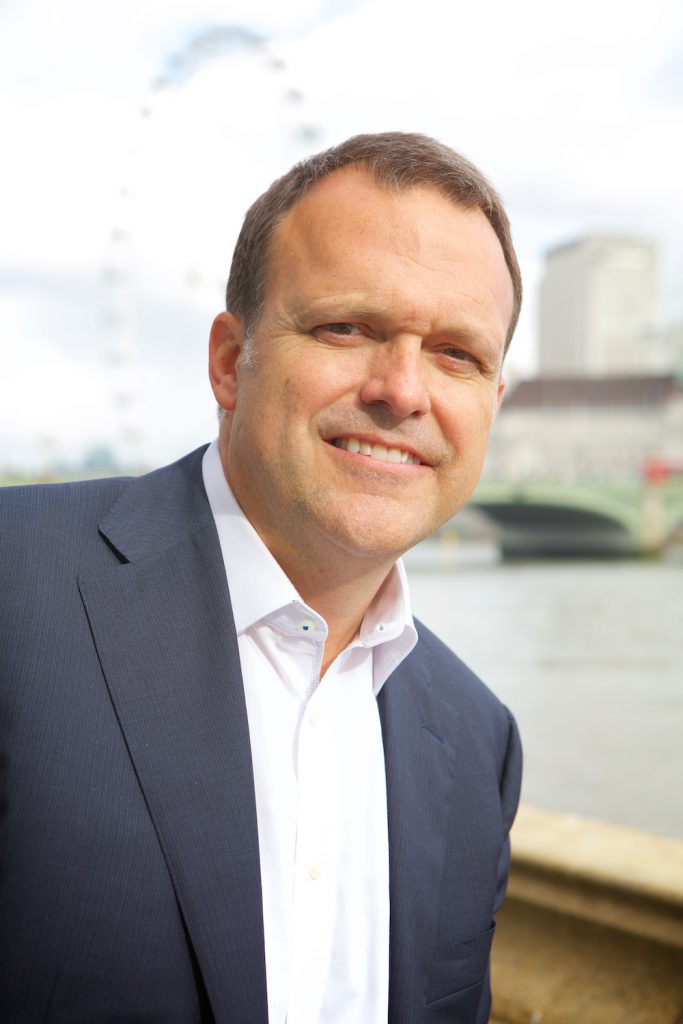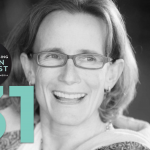A version of this interview was originally published on B The Change (bthechange.com).
Throughout Traditional Medicinals’ more than 40-year history, the tea company had never taken an outside investment other than from friends and family. By 2016, most of the business was still owned by co-founder Drake Sadler and his family, with no plans to ever sell it. But for the brand to reach its potential, the board realized something had to change. “Historically, if a Traditional Medicinals shareholder wanted to sell their shares, the company purchased them and retired them,” says CEO Blair Kellison. “With the company continuing to grow each year, the board came to realize that was not a good use of our earnings, which should instead be invested in supporting the company’s growth.”
Traditional Medicinals (TM) decided it was time to take outside investment — but Kellison and the board were committed to finding an investor who shared their values and would only support growth that aligned with the company’s mission. “We set out with the lofty goal of creating a private, liquid market for about 20 percent of the ownership of the company,” Kellison explains. “This was quite challenging, as most investors’ first question is about the company’s exit strategy.” How would they find investors for a company they planned never to sell?
TM worked with Big Path Capital, a B Corp investment bank that assists purpose-driven companies in mission-aligned capital raises and exits, and by April 2017, a third B Corp, The Builders Fund, announced it had made a minority investment in TM.
We asked Kellison and Tripp Baird, co-founder and managing partner of The Builders Fund, to tell us more about the details of the creative deal and what they learned from the experience.
Traditional Medicinals at a Glance
• Location: Sebastapol, CA
• Founded: 1974
• Team Members: 180
• Traction: Fourth-largest bagged-tea company in the US; largest organic tea company in North America; largest socially certified (Fair Trade/Fair Wild) tea company in North America
• Impact: The company purchases 120 different herbs from 280 collectors and farms in 40 countries on six continents
• Key Awards or Recognition: 2017 B Corp Best for the World Honoree
• Structure: Private for-profit
• Certifications/Memberships: B Corp, Certified Organic, Fair Trade, and CA Green Business, to name a few
• Mission Statement: “To connect people to the power of plants to change lives.”
• Company Values: Quality, Collaboration, Humility, Respect, Innovation, Sustainability. Employees are hired and reviewed annually on these values.
Why was this the right time for TM to seek outside investment?

Blair Kellison, CEO, Traditional Medicinals
Blair Kellison: Our new investment enhances our capitalization and increases our financial sustainability, which will in turn enhance our environmental and social sustainability.
We were upfront in every initial conversation that our company would never be sold. The new investors do not have the ability to sell for several years, and when they decide to sell they must give the company enough notice for us to find another buyer to replace them. We were pleasantly surprised at the level of interest in such an investment.
Why was Traditional Medicinals an investment The Builders Fund was interested in? What role will The Builders Fund play in the company as investors?

Tripp Baird, Co-founder & managing partner, The Builders Fund
Tripp Baird: We decided to invest because of our development of a strong relationship with ownership and management based on shared values and a shared vision for the potential of business as a force for good in the world.
We are, by strategy, a hands-on investor. Our name is meant to celebrate the “builders” — entrepreneurs and management teams building companies that improve the world. All of us at The Builders Fund have also built businesses ourselves and have raised most of our capital from former operators, who serve as resources to our investments. That said, Traditional Medicinals is also a 43-year-old business with an exceptional management team, which means we don’t need to be heavily involved in the day-to-day.
All three of your companies are certified B Corps. Did that play a significant role in the investment?
Kellison: It’s no accident all parties to this transaction were B Corps. There’s actually a fourth: our attorney for this transaction was Wendel Rosen, a B Corp-certified law firm in Oakland, CA. When working with another B Corp in any capacity, there is inherently a level of comfort and trust.
What recommendations do you have for purpose-driven companies and investors?
Baird: Start from the long-term, aspirational goals and work back from there to strategy and an operating blueprint. Financial returns become a natural byproduct of that alignment, rather than the fundamental goal. In our experience, a shared understanding of that spectrum — from long-term vision to short-term execution — creates the best kind of mission-aligned partnerships.
Kellison: All growing companies need money and are excited at the prospect of receiving equity financing, but you must be cautious and make sure your goals and expectations are aligned with your investors’. If not, you will quickly create a stressful situation for both you and your investors.
Take lots of time on the term-sheet process, which is arduous and tedious. During this time, you’ll get to know each other and determine whether you’ll be good long-term partners. Don’t sign a term sheet that says “standard terms” and “standard investor preferences,” as there is no such thing. Don’t ever sign a term sheet that only spells out the valuation and the amount to be invested; that is important, but that is the easiest part of the process.
Investors and their expectations around return and exit will drive the overall strategy of any company, like it or not. All investors deserve the ability to earn a return and have an ability over time to exit their investment.
Any other advice?
Kellison: Don’t sell your company. Raise money from an impact investor, hire a good team, and let the idea and products that launched your company and your mission and values reach their full potential.
Private Liquid Markets
Michael Whelchel, co-founder and managing partner of Big Path Capital, explains more about how this funding option can work.

Michael Whelchel, co-founder and managing partner of Big Path Capital
Usually, private investments into companies are highly illiquid — years can pass before an investor receives their money back. That’s very different from the public markets, which provide daily liquidity. But it’s possible to set up a process to allow existing investors to sell part or all of their interest in a company to either other existing investors or new investors, thereby creating liquidity on a specified frequency; normally every one to three years. This is what we call a private liquid market (PLM).
How does a company know if a PLM might be a good option for them?
• This strategy can apply to most companies that are in a growth stage or later stage. It would not be good for early-stage companies.
• It helps if the company is performing well — e.g., valuation is increasing over time.
• It can be a good solution if the company needs growth capital, has investors who are looking for liquidity and don’t want to wait for a full exit, or for companies that never want to sell majority control but have a need to bring in outside capital or want to generate some liquidity for themselves.
Who initiates a liquidity event?
The company controls the timing. Typically, a company would pick a window of time every two to three years where there can be a buying and selling of shares within that pre-defined window.
What say does the company have in who buys the shares?
The company can control how the buying and selling occurs. Here are some examples:
• The company can have a first right of refusal so that it has the opportunity to purchase any shares from the sellers. This gives the company one type of control over whom the shares go to.
• Although not as common, the company may also have a veto right on whom the shares can be sold to. This is not common because an investor would be unlikely to agree to this on the front end as it exerts a lot of control over how that investor can exit their investment.




